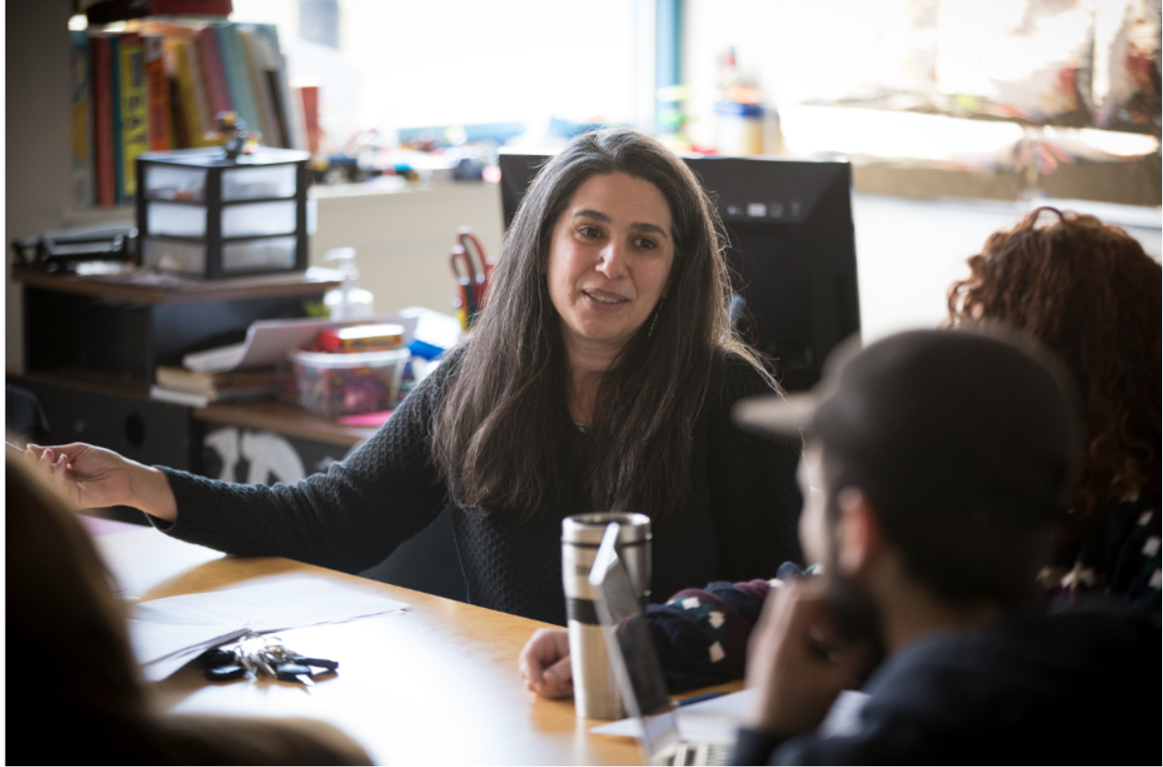College Corps seeks to address COVID-related challenges in Worcester Public Schools

The COVID-19 pandemic is overwhelming an already stressed K-12 education system, with the shutdown of schools posing significant challenges to teachers and students already challenged by the health and economic impacts. To help lessen the burden on Worcester Public Schools, Clark University has joined forces with several surrounding colleges and universities to form College Corps — an emerging collaboration dedicated to addressing the community’s most urgent needs.
College Corps is an initiative from the Higher Education Collaborative of the Worcester Together Youth Working Group, which was founded in August as an offshoot of the Worcester Together Fund. Comprised of representatives from many area colleges, College Corps will support WooLabs, a community-based collaboration that aims to amplify the work happening within the Worcester Public Schools through project-based activities done outside of school.
College Corps is currently developing a multifaceted plan to help care for local children through academics, social-emotional learning, and fun, while supporting parents and families. The group is also bolstering Worcester’s economy by supporting businesses and nonprofits doing essential work in the community.
“COVID is a tragedy, but it’s also a possibility for reimagining the way we educate our young people,” says Professor Laurie Ross, associate dean and director of Clark’s Center for Excellence in Teaching and Learning. “There’s this huge vision. We have 25,000 kids in the Worcester Public Schools so I don’t know if we could ever cover the city, but the idea is to start with some pilots. Part of what we’re also doing is inventorying resources and making them more visible to the schools.”
Ross is among the college representatives meeting twice weekly to help establish College Corps, which will embed college students in different settings throughout the city. The group hopes to support already established socially distanced learning pods for K-12 students and develop online content to reinforce work happening in the classroom. College Corps will also provide support for parents and students struggling with remote learning technology.
“Many families that are going through K-12 education have all these situations with child care, access to technology, unreliable internet. A lot of work is being done to build upon efforts by the Worcester Public Schools to support the educational growth for those kids,” says Benjamin Gardner, associate director of Community Engagement and Volunteering at Clark. “College Corps is about plugging the abilities of our students into that work.”
In addition to Clark University, other institutions involved in the effort include Assumption University, College of the Holy Cross, Quinsigamond Community College, UMass Medical School, Worcester Polytechnic Institute, and Worcester State University. Each participating college and university is drawing upon its own unique strengths to provide support.
Clark, for example, is focusing on the Main South neighborhood, while WPI is providing technological support for remote learning. Worcester State is focusing much of its work through its Latino Education Institute.
“Everybody from the different schools and nonprofits is approaching their work from slightly different lenses, and there is so much cross-communication,” Gardner says. “It’s about figuring out what we can do now with the resources we have available.”
College Corps and WooLabs are working with the Higher Education Consortium of Central Massachusetts (HECCMA) to develop a training module for college students who want to work for credit on these learning initiatives. The training will provide an introduction to the Worcester community, cover diversity, equity, and inclusion issues, review COVID-19 safety protocols, youth development, and personal skills like financial literacy. At the end of the training, the students will earn a certificate.
“The work will be intellectually hard and it will be emotionally hard, and we want to create networks of support around the college students,” Ross says.
This winter, College Corps hopes to support K-12 learning pods in collaboration with community partners throughout the city. These socially distanced centers allow children to conduct their remote learning with additional support that addresses such issues as the lack of online connectivity faced by many families in Worcester, as well as the challenge of finding affordable child care.
“Clark is unique in that we have face-to-face instruction and we’re letting our students do community work, as long as the site meets safety standards,” Ross explains. “We have volunteers who can support these learning centers. So for example, instead of being at home doing remote instruction, these children can do their schoolwork at the Boys and Girls Club or the YMCA.”
Ross says that there’s also a need for asynchronous (not delivered in real time) learning material — particularly for Worcester’s youngest students who have never been in a physical classroom before. College Corps is assessing those gaps and creating material that can be shared with the schools.
“This program helps lay the foundation to train and mobilize college students, and Clark prides itself on leading that effort,” Gardner says. “We attract the type of students who are naturally drawn to this work, but who also aim to address the issues faced by many in the city in a way that’s intentional and mindful of privilege.”


